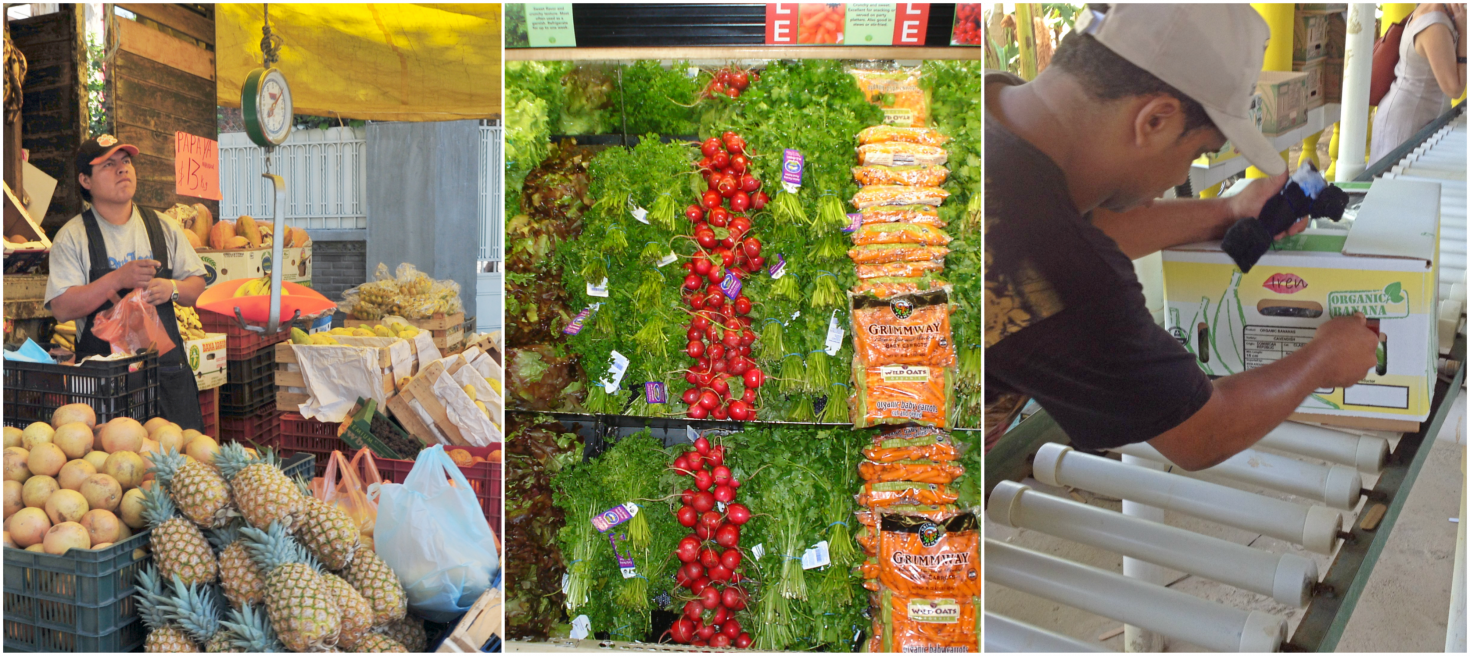The document drafted by IICA specialists presents success factors and positive experiences implemented in other Latin American countries.

San Jose, 19 January 2017 (IICA). A new document, published by the Inter-American Institute for Cooperation on Agriculture (IICA), details three different commercialization strategies that could allow producers to enter and remain in the market.
The commercialization of agricultural products is one of the most complex components of agricultural production. In many cases, it poses a serious challenge for producers. Limited infrastructure, scant organization, inadequate market vision, and poor value added are some of the hurdles that producers face.
The document Commercialization Strategies that Facilitate Market Access for Agricultural Producers identified three stretegies that favor linking and market presence:
- short supply chains, such as fairs and farmers’ markets
- supply chain linkages, school feeding programs
- commercial linkages for differentiated products, such as marketing of products with differentiated seals (fair trade, origin, organic, etc.)
“These strategies facilitate knowledge of consumer demands, with the aim of developing processes that add value and help small producers integrate into the market, thus allowing them to improve their profits”, said Fatima Almada, leader of Sustainability of Family Farming at IICA.
For each strategy recommended, conditions and success factors are presented to enhance its function. The document includes a report of about 50 cases in the Americas and the Caribbean that may be used as reference, and one to evaluate the initiatives as well.
“It is hoped that the institutional and commercial innovations encouraged though this document will contribute to increase agricultural productivity and competitiveness, the production of high quality and healthy food, and the well-being of rural territories”, stated Daniel Rodriguez, leader of Agribusiness and Commercialization at IICA.
This document, a free online publication, is a public good that IICA presents to its Member States to assist agricultural producers with market entry and sustainable management. It was drafted by both the Competitiveness and Sustainability of Agricultural Chains and the Productivity and Sustainability of Family Agriculture flagship projects at IICA.
More information: daniel.rodriguez@iica.int – hernado.riveros@iica.int – fatima.almada@iica.int
Publication: Commercialization Strategies that Facilitate Market Access for Agricultural Producers











